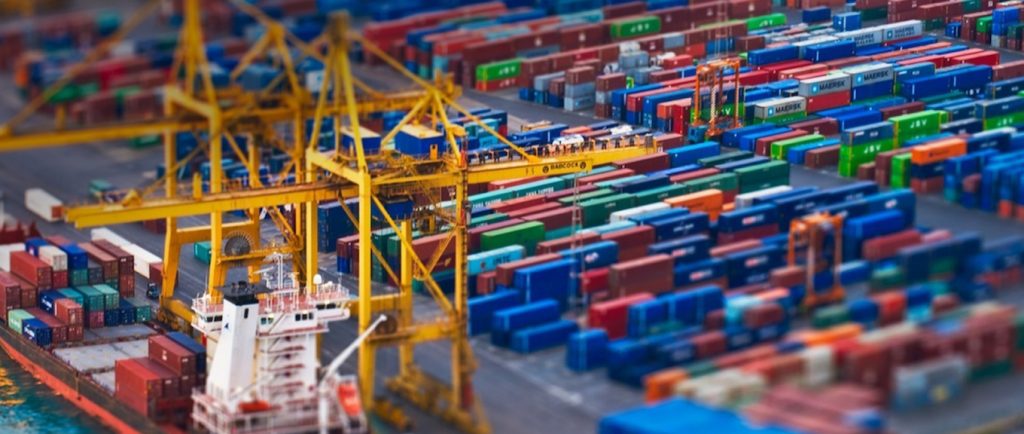President Trump’s renegotiated Korea trade deal shows that the era of America’s unilateral trade disarmament is over. During the last 30 years, various academics and free traders have urged the United States to pre-emptively remove all of its trade barriers.
Op-ed originally appears on The Hill March 29, 2018
The idea was to encourage other countries to follow America’s lead and open their markets. But this “unilateral disarmament” approach did not work. Major industries moved offshore, growth and innovation suffered, and workers lost jobs and struggled with lower wages.
America’s international trade deficit has skyrocketed in the past 20 years, revealing a harsh truth: Most of the world’s industrialized powers aren’t looking to buy U.S. goods. Instead, they’ve staked their own economic success on continuously exporting a one-way flood of goods into America’s large, affluent consumer market.
Amid this picture of unbalanced trade, the Trump administration has just concluded a renegotiation of the 2012 US-South Korea trade agreement (KORUS). It’s the first-ever renegotiation of a free-trade agreement in U.S. history.
If the early returns are accurate, the administration appears to have gained significant concessions without giving much ground.
The KORUS agreement has proven to be a bad deal for U.S. manufacturers and farmers. South Korea gained market share in the U.S., displacing domestic American companies, but did not allow sales in its home market to offset these losses.
As a result, America’s goods trade deficit with South Korea more than doubled from a pre-KORUS $13 billion in 2011 to $27.6 billion in 2016. In the last two years alone, the U.S. racked up more than $50 billion in trade debt with South Korea.
While pundits incorrectly worried about angering South Korea, U.S. Trade Representative Robert Lighthizer simply utilized America’s leverage to achieve far more favorable trading terms than his predecessors.
Lighthizer and his team compelled Seoul to agree to key concessions on auto trade and to lift market access restrictions that have long stymied U.S. agricultural and industrial exports.
Currently, South Korea caps its annual intake of U.S. automobiles at 25,000 per manufacturer, a cap that was never achieved because of market access restrictions. Under the revised agreement, Seoul will eliminate these restrictions and raise the cap to an achievable 50,000 cars per manufacturer.
South Korea has also agreed to revise its problematic customs verification process and to provide new opportunities for U.S. pharmaceutical exports. It will also reduce its steel exports 30 percent by product to the U.S. to avoid being a conduit for China’s steel overproduction and trade circumvention.
While this is a good step, much more work is needed. Last year, the U.S. ran a whopping $811 billion goods trade deficit with the rest of the world. It’s a massive, troubling number, since it represents an extraordinary loss of industrial capacity, innovation and manufacturing jobs.
But if there’s a silver lining, it’s that many countries have grown excessively dependent on selling to the U.S., and they badly need continued access to America’s consumers.
Being this “market of last resort” gives the United States unique leverage. But it’s a muscle the U.S. has seemed reluctant to flex — until now.
All in all, the Trump administration has made impressive strides toward exacting equitable terms from a trading partner that has previously focused on its own gain. South Korea and other countries have simply taken advantage of America’s naivete in recent years.
But insisting on renegotiation, with a threat of withdrawal, demonstrates that the U.S. is stronger when it acts to avoid being taken advantage of in the global marketplace.
The result sets an important precedent. South Korea wants to continue selling to the U.S., and Seoul simply made the concessions necessary to keep the gravy train rolling. The Trump administration should use similar leverage toward achieving balanced trade as it negotiates with Canada, Mexico and China.
Michael Stumo is CEO of the Coalition for a Prosperous America, an organization that advocates on behalf of U.S. manufacturing, agriculture and labor. Dan DiMicco is the former CEO and chairman of Nucor steel company. He served as a trade advisor to Donald Trump during Trump’s 2016 presidential campaign. DiMicco is chairman of the Coalition for a Prosperous America.













